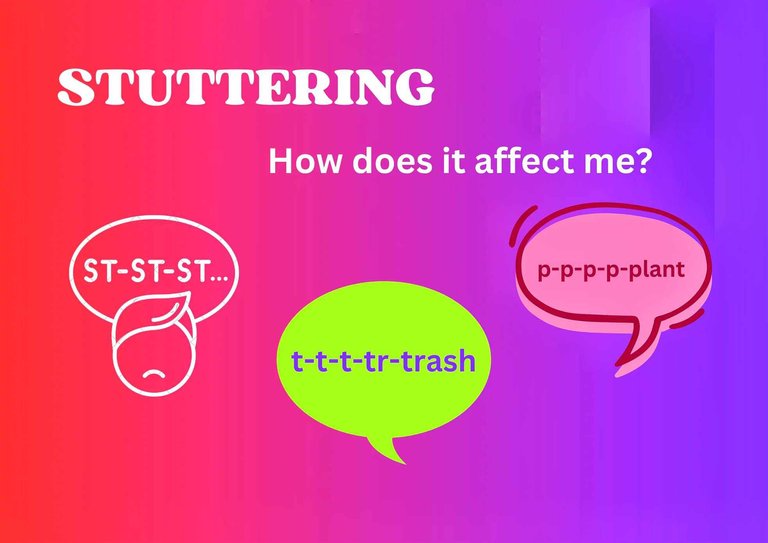
I used to avoid speaking before a group of people like giving a speech in a church meeting, participating in a discussion, offering a prayer or just by reading a scripture passage in a Sunday School Class or any meeting for that matter.
It was not that I don't have ideas or something to share but it is mainly due to my stuttering where I sometimes experience blockage which usually happens at the first syllable of a word. For example, the word is plant. Instead of saying right away the word plant, I would sometimes say p-p-p-p-plant.
Some words I have difficulty uttering are those that start with vowels and some consonants like c, d, b, p, t. Because of this condition, my confidence level is greatly affected causing me not to express myself and prefer to just listen instead.
It doesn't happen all the time though but when it does, it occurs randomly, which is something I dread. I get anxious, conscious, and embarrassed. I worry about what people would think of me. They might think I am weird or abnormal.
In casual conversations, I also stutter but my anxiety isn't as intense compared to when I am speaking in front of a congregation. This is the reason why I decline church speaking assignment. I know it isn't good to decline but my fear was so great that I would say, "Just give me another task, just don't let me speak."😅
We noticed it when I was little but thought maybe I would outgrow it. When I was in college my stuttering became more noticeable and the more I became conscious. Little did we know that there was therapy for that until last year that I came across a facebook page of a university here in Cebu that offers free speech therapy sessions for various speech problems. When I learned about it, I immediately inquired and then registered. After about 2 months, I was given a slot.

Speech Therapy
I underwent a therapy for ten (10) months by a rotation of student clinicians via Zoom meeting once a week. It started with assessment, followed by counseling which was focused on my negative feelings and attitudes towards stuttering. It was an opportunity where I was able to express without hesitation how I feel about it because I knew the clinicians were there to help me and I don't need to be ashamed.
In the following months, some stuttering modification techniques were introduced. We had activities that enabled me to apply and practice them. Moving forward in the following months, I have learned the ultimate strategies that helped me manage my stuttering. Sometimes they work and sometimes not, but over all they really make my way through. Management differs from one person to another depending on its type. Let me share with you what was recommended for me.
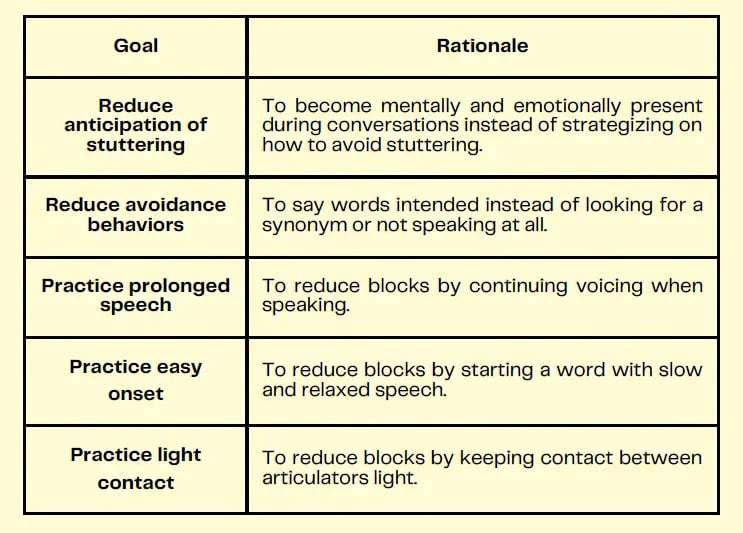
Goals and Strategies
1. Mindset
My case is mild blockage which means that I stutter only 10 per cent of what I say. I need to be accepting of my flaws and I should think that it is okay to stutter, people can wait, and I can still be understood. This technique will lessen my anxiety that allows me to become calm so that I can focus on what am I going to say rather than on my feelings towards it.
2. Easy Onset
While shaping the lips, air must also flow from the mouth
and the muscles of the mouth must be loose and relaxed instead of forcing the lips to shape. If the articulators (mouth, lips and tongue) are struggling, the more it would be hard to utter.
3. Prolonged Speech
This technique is speaking slowly and slightly stretching the syllable or sound. For example: "Good Morning". One should say, "Goood Mooorning!"
4. Light Contact
Instead of normally shaping the lips, its movement is deliberately made light to release tension in the mouth as if one is mumbling only resulting to low voice volume which can then be normalized when the word is already uttered.
Progress
Let me share with you some feedback from my student clinicians that describes my journey.
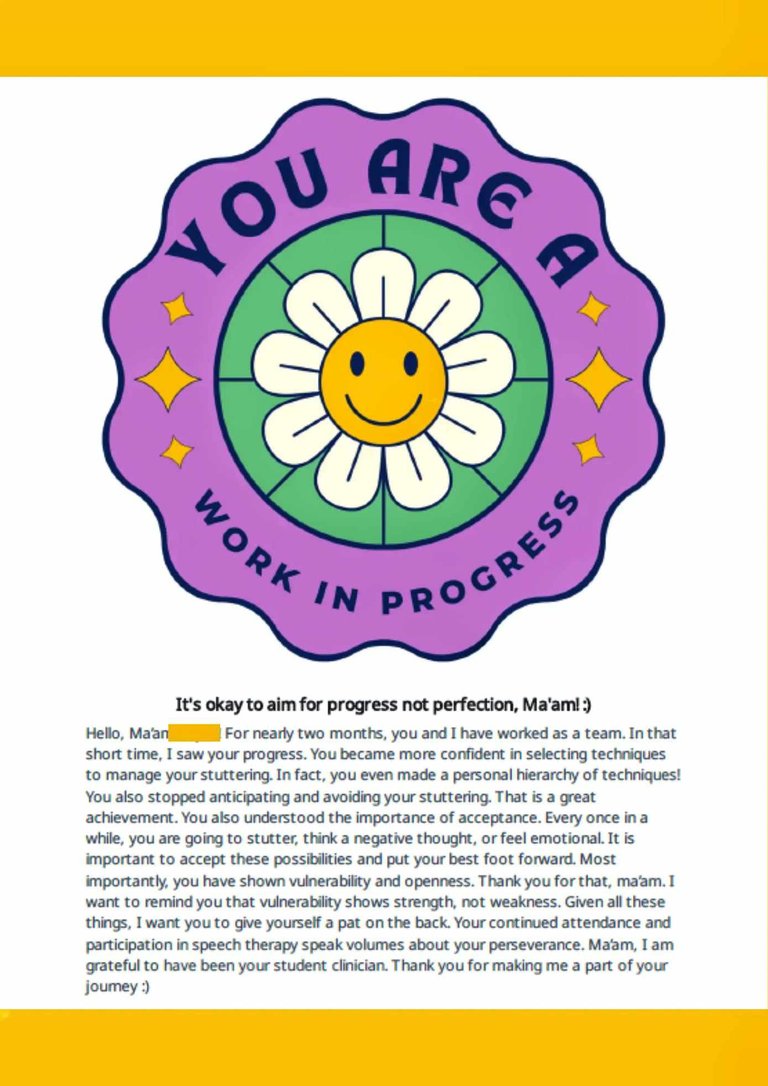
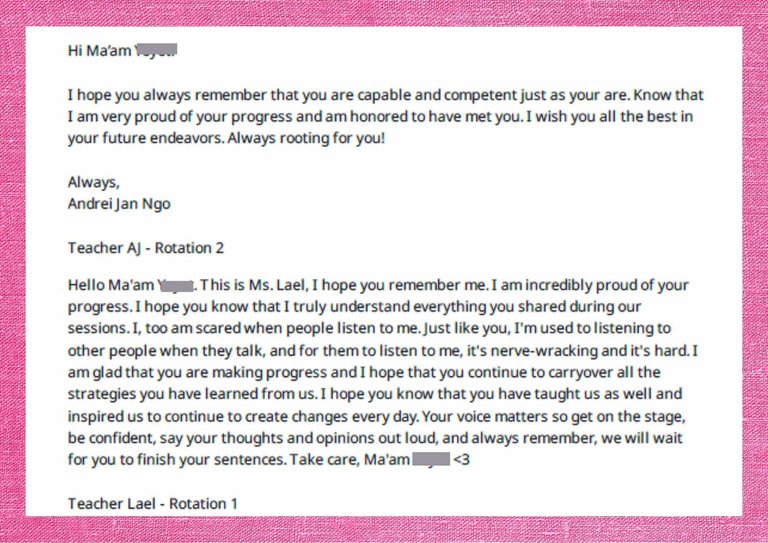
Stuttering can't really be cured but at least its frequency can be lessened and when it occurs, can be managed. I have learned to use the techniques and found them very helpful. They enabled me to have something that comes in handy when I need it rather than struggling and waiting for the words to come out or just simply stop speaking. They aren't that easy but with constant practice, these tools create more confidence rather than being anxious during its occurrence.
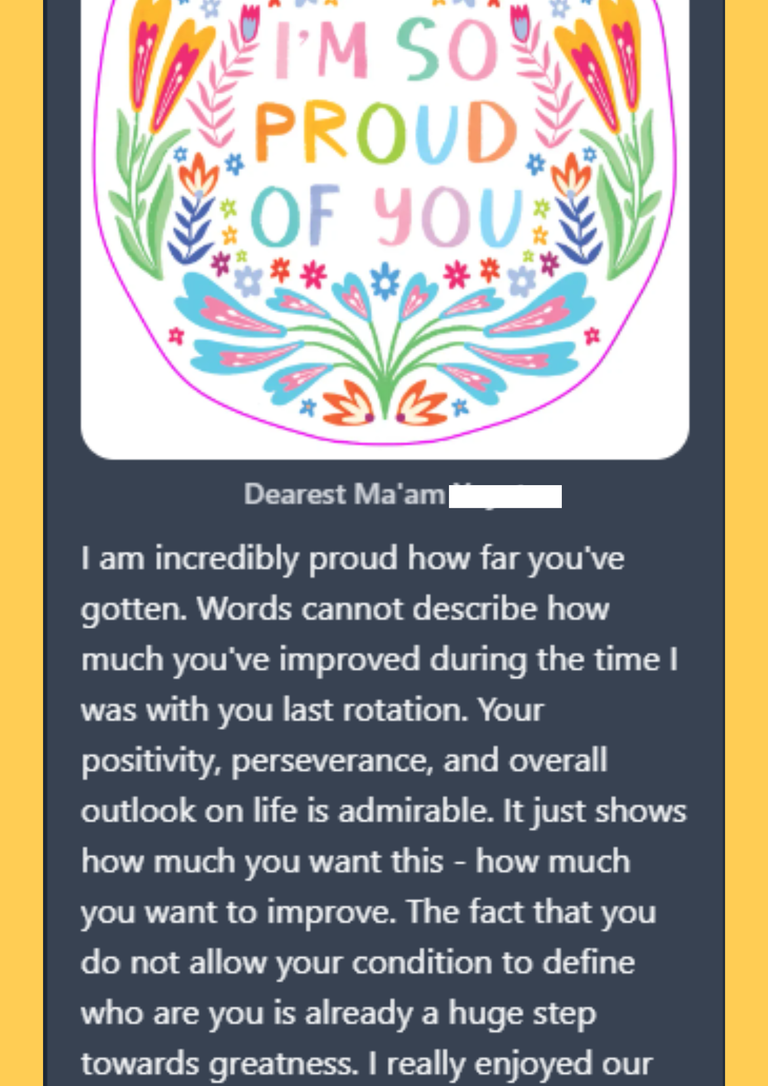
A Successful Endeavor
The clinicians were able to use their knowledge and apply them to real-life conditions like mine. On my part, with diligence and cooperation, I was able to benefit from their service which enabled me to learn and use the strategies that have been taught. At present, my condition is not totally gone but I know how to manage them resulting to an increase in my confidence level.
I am truly grateful for the opportunity to be a part of the program that helped me manage my stuttering.
Thank you so much for reading. Until next time.
Take care,
lytha



